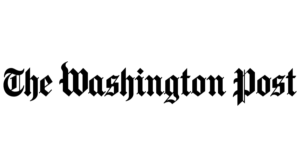
By Christopher Rowland
March 3, 2022
A consortium of large U.S. hospitals, which four years ago pioneered a system to alleviate chronic shortages of inpatient drugs by producing its own, is seeking to further disrupt the pharmaceutical system with a bid to dramatically slash insulin costs for diabetics.
The consortium’s nonprofit company, Civica Rx, said Thursday it plans to manufacture and sell generic versions of insulin at no more than $30 per vial and $55 for five injector-pen cartridges, a fraction of list prices that currently range from $125 to more than $500.
The company said it expects to begin selling insulin in 2024, once it completes construction of a 140,000-square-foot pharmaceutical plant in Petersburg, Va. It also must win licensing from the Food and Drug Administration. Though at least two years from fruition, the move could provide relief from high insulin prices charged by Eli Lilly, Sanofi-Aventis and Novo Nordisk that advocates say have caused some low-income patients to ration their insulin or skip doses.
High insulin prices have been decried for years by advocates, doctors, and members of Congress. Diabetics typically use two to three vials of insulin per month, so costs can shoot well above $6,000 a year for people with no insurance, inadequate coverage, or high deductibles.
President Biden, in his State of the Union speech Tuesday, denounced drug companies for charging up to 30 times the $10-per-vial manufacturing cost of a vial of insulin. He repeated his call for a $35-per-month price cap for insulin for patients with Medicare, Medicaid and private insurance. That proposal is bottled up in Congress as part of the president’s Build Back Better initiative, which passed the House but stalled in the Senate. Also, Biden’s insulin price cap would not apply to people who lack insurance, who are the patients exposed to the highest list prices.
The problem of escalating insulin prices has been exacerbated by a lack of generic competition. Generics have been slow to arrive for insulin, a 100-year-old discovery, because it’s a biological drug, requiring a special “biosimilar” regulatory framework from the Food and Drug Administration that was not fully established until 2020.
“Clearly there’s this burning need to do something in the best interest of patients,” Civica Rx CEO Martin VanTrieste said in an interview. “We want to be that biosimilar company that sets a standard, that brings quality insulin at the lowest sustainable price.”
Civica Rx is about two-thirds of the way toward its goal of rounding up $125 million in capital from its member hospitals, charitable foundations and Blue Cross Blue Shield insurance plans. It has established a partnership with an Indian company, Genesys, to make insulin drug substance for importation to the United States. The Virginia plant will then finish the drugs and fill vials, with a capacity of up to 100 million vials a year.
Once production begins, the business will be sustainable without the need for more charitable subsidies, VanTrieste said.
Congress has repeatedly rebuffed efforts to lower drug costs. The Civica Rx plan is among a variety of smaller-scale individual efforts intended to lower the costs and improve reliability of supplies.
Billionaire Mark Cuban started the Mark Cuban Cost Plus Drug Co. to sell select low-cost generics, including a no-brand version of the cancer-fighter Gleevec. The company said it will charge cost plus 15 percent, with no insurance accepted.
The Trump administration backed Phlow, a private company with ties to Civica Rx, with more than $400 million in contracts to domestically produce the source materials for drugs, called active pharmaceutical ingredients. Phlow also is building a facility in Petersburg, next door to Civica Rx’s.
“Pretty surprisingly, or maybe not surprisingly, prices have not come down much,” said Aaron Kowalski, president and chief executive officer of JDRF, a nonprofit organization that funds research and advocates on behalf of diabetics.
What’s more, the lower-cost generics have not been widely available, he said. The pharmacy-benefit managers who work with insurance companies to decide what drugs get the most favorable insurance coverage do not get the same manufacturer rebates from the generics, Kowalski said.
High insulin prices disproportionately affect Native Americans, Black Americans and Hispanic Americans, because they are more likely to lack insurance.
“It’s the system failing people who need the drug the most,” Kowalski said.
Kowalski said he knows a diabetic from Texas who regularly travels to Toronto to buy insulin under the Canadian pharmacy system, which has price caps. The savings over U.S. prices easily eclipse the costs of airfare and hotels for the trip, he said. JDRF contributed $5 million to the Civica Rx insulin project.
Walid Gellad, associate professor of health policy and management at the University of Pittsburgh, said the Civica Rx initiative is a welcome model for disrupting unfair drug pricing.
“Just as much as the benefit of this is in providing insulin at low cost, it is also a proof of concept, I think, of a new way to provide lifesaving medicines that shouldn’t cost as much as they do,” he said. “Also, this is another entrant into the transparent pricing model for drugs, not reliant on a complicated rebate system or inflated charges to work.”
